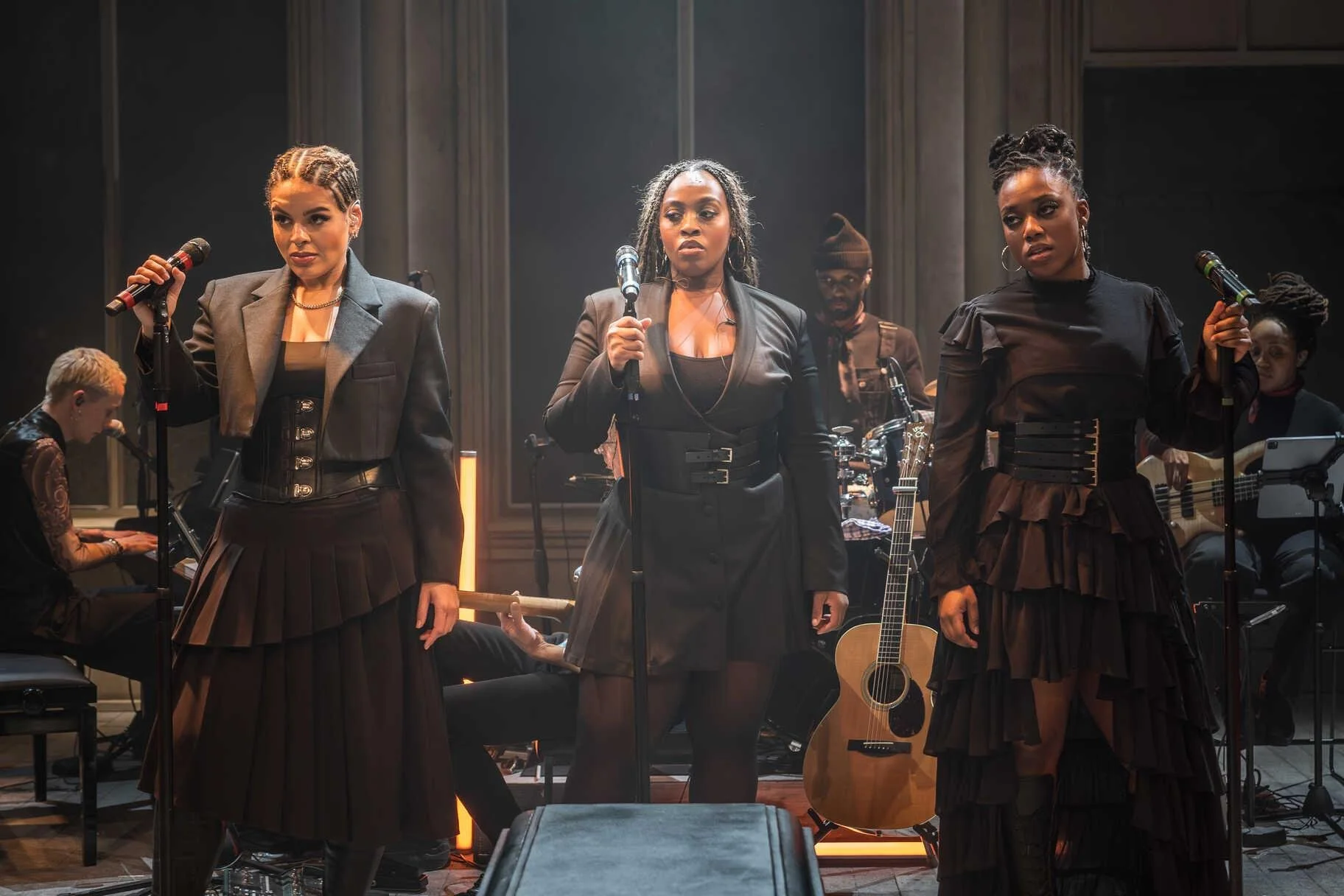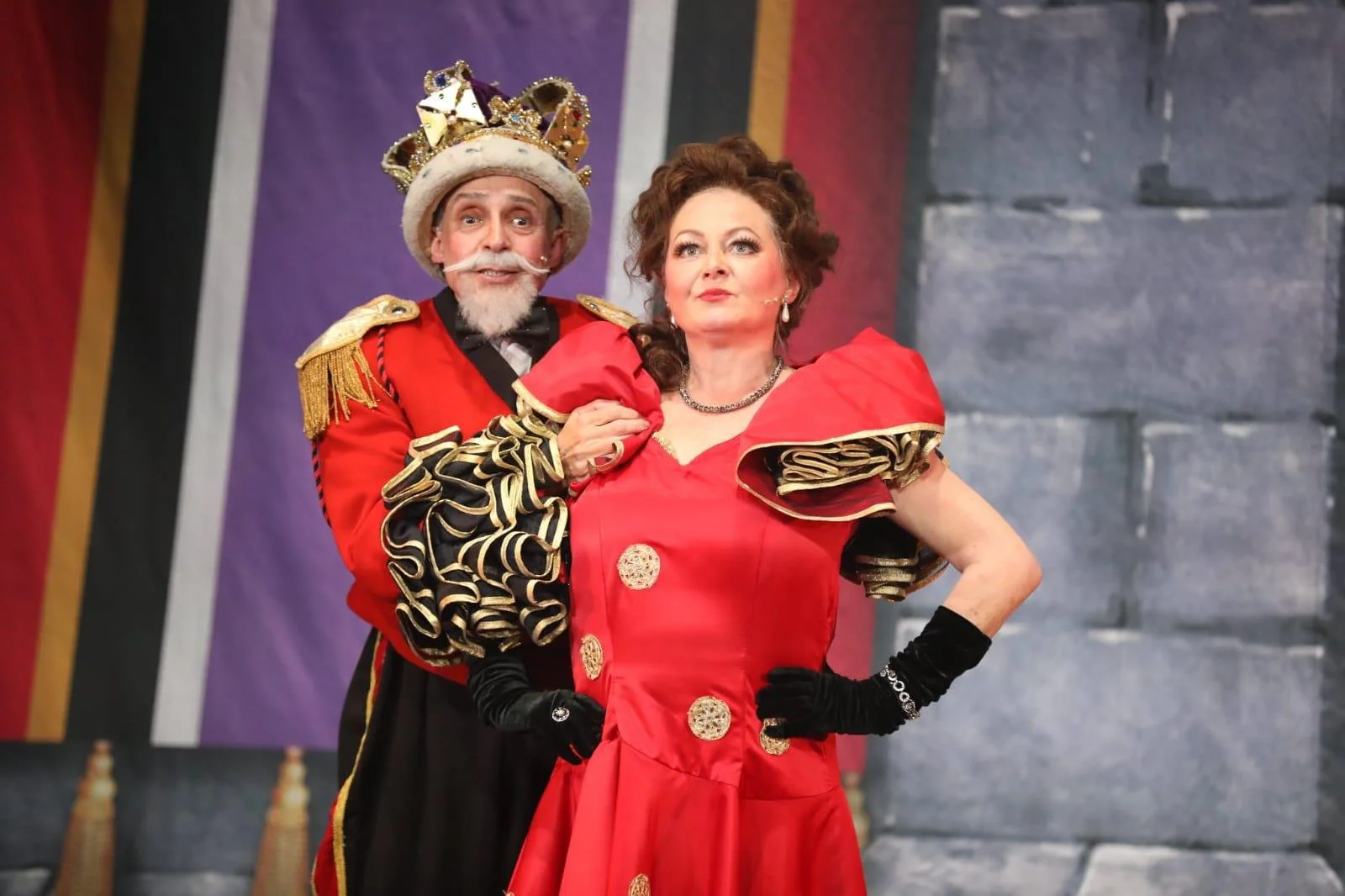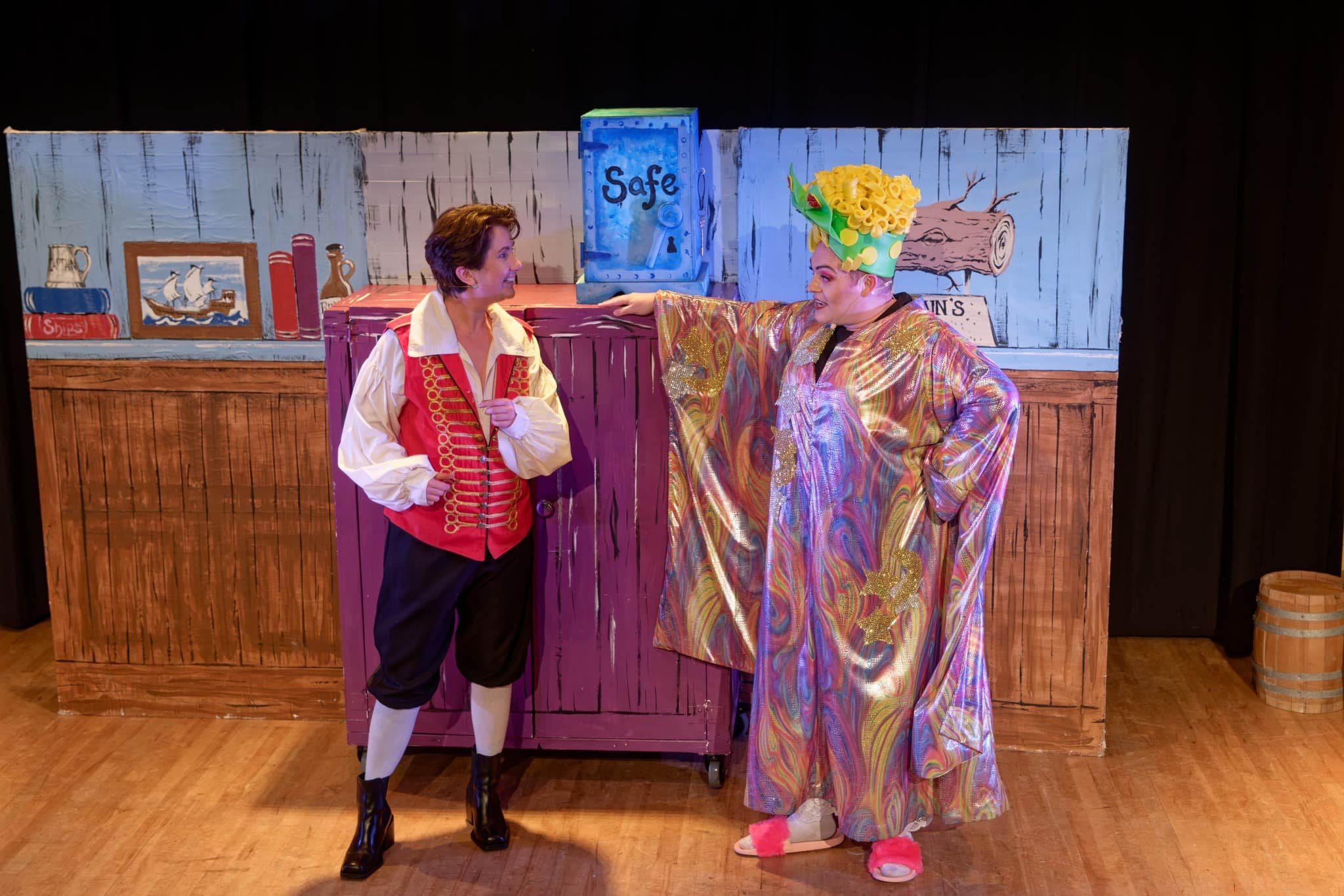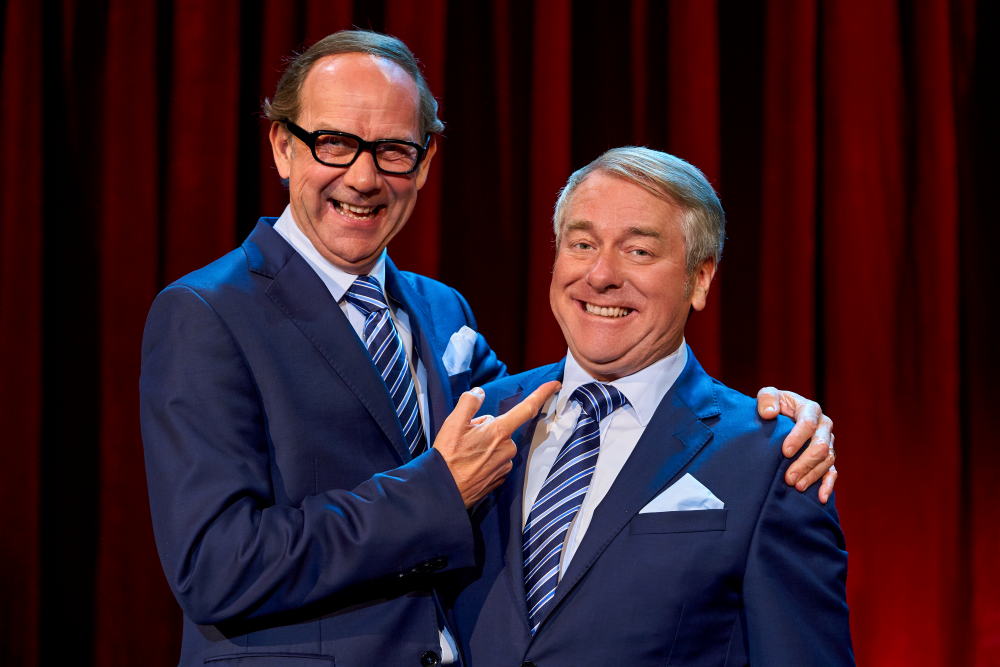The School of Scandal, The RSC Review
Photo by Marc Brenner.
Written by Cathie for Theatre & Tonic
Disclaimer: Gifted tickets in exchange for an honest review.
The School for Scandal by Richard Brinsley Sheridan, is an infamous 18th century comedy of manners and subversions of societal expectations. You could also consider this play filled with a slew of Lady Whistledowns in a competitive haze to outbid each other in the most sensational gossip possible. This play titillated and scandalised audiences back in 1777 and a mere 249 years later has continued this tradition at the Royal Shakespeare Company Theatre in Stratford Upon Avon. On a personal note, this is my favourite play I studied for my A-level exams and I still know this play by heart over a decade later. Therefore, I had very high expectations for this show and to experience the actor’s take on the characters. I am ecstatic to say that this adaptation blew my every hope into the stratosphere and raised the bar in every way.
Everything in sight is boldly pink, sparkly and dazzles at any opportunity, reflecting opulence, lavishness and lax morals equally. Tinuke Craig’s direction is light and subtle, allowing the absurdity of this satire to showcase its quips and witticisms in a whimsically flippant fashion. The cast was phenomenal in showcasing the ridiculousness of the characters. Tara Tijani as Lady Teazle was rapier witted and had remarkable chemistry with Geoffrey Streatfield, whose steadying presence and excellent timing grounded the play well. Lady Sneerwell (Siuhan Harrison) and Snake (Tadeo Martinez) are captivating antagonists whose lust for gossip exceeds their daily need for sustenance. Wil Johnson stole the show for me as Sir Oliver Surface and his lightning switches between deadpan stoicism and exaggerated frustration were side-splitting. The Surface brothers had excellent chemistry together. Stefan Adegbola’s dry witted schemer Joseph was fabulously fulsome in “sentiment” but not in actions and John Leader’s extravagant Charles was opulent and magnificent in his complete disregard of any form of restraint. The cast who portrayed gossiping blabbermouths Mrs Candour, Sir Benjamin Backbite and Crabtree (Emily Houten, Patrick Walshe Mcbride and Jason Thorpe) were excellently foppish and had me regularly in stitches of laughter with their mincing walks and wounded affronts. Jessica Alade’s Lappet was also an epic scene stealer and worked well opposite Morehouse (Shazia Nicols), an unrepentant money loaning parasite.
The pace of this show is slower than more modern comedies, but this is more a reflection of upper-class societal ennui and dissipation and showcases the themes in a more palatable way than more rapid-fire modern comedies. In this performance, there are some unabashed nods to modern gossip culture. This includes adapting the lines to make modern references to injunctions and “digital grapevines” in an entirely new prologue, epilogue and segue into the interval. These adapted lines hold true to the spirit of Sheridan’s own writing style and tongue-in-cheek wit. He himself adapted the play many times throughout his lifetime and countless later performances have done the same. Sometimes these new lines lack some of the bite of the originals however, Sheridan himself would refer to this play as his favourite farce and the light humour and deprecation can carry the point just as well without complete descent into hyperbolic ridicule.
Alex Lowde’s set was fairly bare but bold, with large writing used to signify changes in address and excellent use of CGI to showcase the different houses’ personalities. The effects feel quite reminiscent of modern catwalk shows and match well with the themes explored in this play. The actual catwalks to connect the stage to the stalls in different directions was also a fabulous way of showcasing character dynamics and hilariously facilitating plot development. Oliver Fenwick’s use of spotlights, especially during reoccurring gaps and character monologues was also well nuanced and hilarious. The costumes were bold and detailed in a mix of Georgian fashion in a modern form. The changing use of colours to represent the harmony or discord between different characters was a brilliant detail as well, especially for Sir Peter Teazle. Lady Sneerwell’s costume was the most dramatic, with Harrison having to turn and mince sideways to enter and leave the stage, a humorous nod to both the character’s overbearing nature and a reflection of complaints about Georgian fashions.
I sincerely hope that this play has a cinema live or a transfer to the West End in the future as I could watch this adaptation again and again. If you need a fix of Regency gossip and intrigue in your life, enjoy tongue-in-cheek satire or wish for a joyful night out I cannot recommend this play enough to you.
At The RSC until 6 Sept 2024.
★ ★ ★ ★ ★











